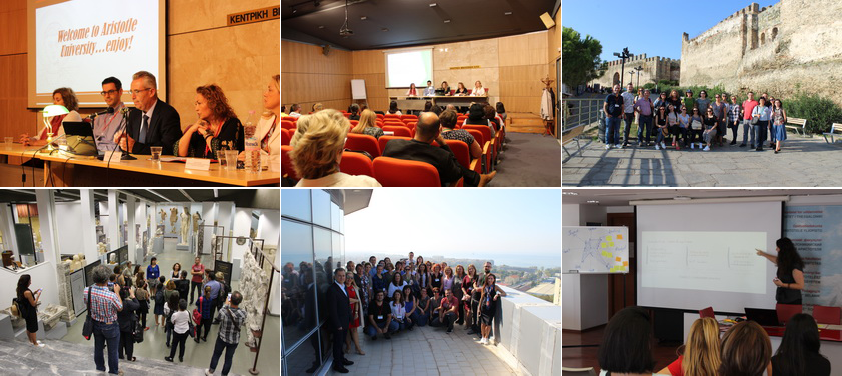
|
Dates: |
14-18 October, 2019 |
|
Online Application: |
|
|
Themes: |
The Erasmus Staff Training week is addressed to all interested parties working in the following fields:
|
|
Working Language: |
English |
|
Target Group: |
Colleagues from European and International Universities working in various departments, and who are dealing with the Erasmus+ programmes generally, Erasmus+ and Erasmus+ International mobilities and agreements, Erasmus+ KA2 projects, international relations, career services, e-University, refugee/migrants student and scholars integration into higher education,etc. |
|
Draft Work Programme: |
The programme will be analytically announced in due time. In a nutshell it will include:
|
|
Application Process & Fee: |
The application period will be from the 22nd of May to 30th of August, 2019. Extension of application deadline until 6th September!!!! Compulsory Participation Fee: 300 Euros Early registration: those who will register until the 19th of July will pay 270 Euros Erasmus funding might be available through your institution (Erasmus Staff training mobility). For further information, please check with your International/Erasmus Office. By the 3rd of September 2019, all applicants will be informed by e‐mail whether their application was approved or not. The fee includes:
Additionally, we offer all coffee breaks, four lunches and an official dinner. |
|
Accommodation: |
The accommodation cost will be covered by the participants. However, the organizers can suggest a variety of possible convenient solutions, taking into consideration the location, the service quality and the price range of the lodgings. Further details will be mailed to the participants, after the confirmation of the mobility. |
|
Contact Person:
|
General and application info: Savvas Varytimiadis Financial issues following selection: Christina Paschou |
The main purposes of the Staff Training Weeks held every year at Aristotle University of Thessaloniki is to widen and strengthen the cooperation with our partner institutions, to share our different experiences on internationalisation, and to facilitate networking and establishment of new partnerships. Participants will be given the opportunity to learn from the experiences and good practices of the partner institutions and focus on relevant discussions such as exchanging ideas about fostering student and staff mobility, presenting their home universities as well as structures and working practices, discussing the current issue of refugee-migrants entering Higher Education, exploring and discussing special topics of interest, etc.
